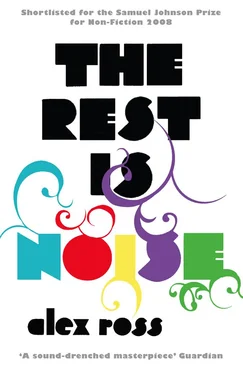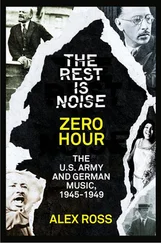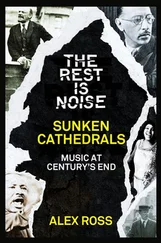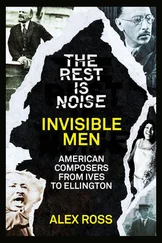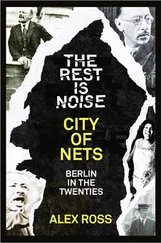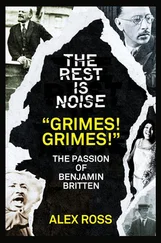The most eloquent critic of Wagnerian self-aggrandizement was a self-aggrandizing German—Friedrich Nietzsche. Fanatically Wagnerian in his youth, the author of Thus Spake Zarathustra experienced a negative epiphany upon delving into the aesthetic and theological thickets of Parsifal. He came to the conclusion that Wagner had dressed himself up as “an oracle, a priest—indeed more than a priest, a kind of mouthpiece of the ‘in itself’ of things, a telephone from the beyond—henceforth he uttered not only music, this ventriloquist of God—he uttered metaphysics.” Throughout his later writings, most forcefully in the essay The Case of Wagner, Nietzsche declared that music must be liberated from Teutonic heaviness and brought back to popular roots. “Il faut méditerraniser la musique,” he wrote. Bizet’s Carmen, with its blend of comic-opera form and raw, realistic subject matter, was suggested as the new ideal.
By 1888, when Nietzsche wrote The Case of Wagner, the project of mediterraneanization was well under way. French composers naturally took the lead, their inborn resistance to German culture heightened by their country’s defeat in the Franco-Prussian War of 1870–71. Emmanuel Chabrier presented his rhapsody España, a feast of Mediterranean atmosphere. Gabriel Fauré finished the first version of his Requiem, with its piercingly simple and pure harmonies. Erik Satie was writing his Gymnopédies, oases of stillness. And Claude Debussy was groping toward a new musical language in settings of Verlaine and Baudelaire.
Wagner himself wished to escape the gigantism that his own work came to represent. “I have felt the pulse of modern art and know that it will die!” he wrote to his comrade-in-arms Liszt in 1850. “This knowledge, however, fills me not with despondency but with joy … The monumental character of our art will disappear, we shall abandon our habit of clinging firmly to the past, our egotistical concern for permanence and immortality at any price: we shall let the past remain the past, the future—the future, and we shall live only in the present, in the here and now and create works for the present age alone.” This populist ambition was inherent in the very technology of the music, in the vastness of the orchestra and the power of the voices. As Mahler later explained: “If we want thousands to hear us in the huge auditoriums of our concert halls and opera houses,” he wrote, “we simply have to make a lot of noise.”
Richard Strauss—“Richard III,” the conductor Hans von Bülow called him, skipping over Richard II—grew up almost literally in Wagner’s shadow. His father, the French-horn virtuoso Franz Strauss, played in the Munich Court Orchestra, which reported to King Ludwig II, Wagner’s patron. The elder Strauss thus participated in the inaugural performances of Tristan, Die Meistersinger, Parsifal, and the first two parts of the Ring. Strauss père was, however, a stolid musical reactionary who deemed Wagner’s spectacles unworthy of comparison to the Viennese classics. Richard, in his adolescence, parroted his father’s prejudices, saying, “You can be certain that ten years from now no one will know who Richard Wagner is.” Yet even as he criticized Wagner, the teenage composer was identifying harmonic tricks that would soon become his own. For example, he mocked a passage in Die Walküre that juxtaposed chords of G and C-sharp—the same keys that intersect on the first page of Salome.
Franz Strauss was bitter, irascible, abusive. His wife, Josephine, meek and nervous, eventually went insane and had to be institutionalized. Their son was, like many survivors of troubled families, determined to maintain a cool, composed facade, behind which weird fires burned. In 1888, at the age of twenty-four, he composed his breakthrough work, the tone poem Don Juan, which revealed much about him. The hero is the same rake who goes to hell in Mozart’s Don Giovanni. The music expresses his outlaw spirit in bounding rhythms and abrupt transitions; simple tunes skate above strident dissonances. Beneath the athletic display is a whiff of nihilism. The version of the tale that Strauss used as his source—a verse play by Nikolaus Lenau—suggests that the promiscuous Don isn’t so much damned to hell as snuffed out: “… the fuel was used up / The hearth grew cold and dark.” Strauss’s ending is similarly curt: an upward-scuttling scale in the violins, a quiet drumroll, hollow chords on scattered instruments, three thumps, and silence.
Don Juan was written under the influence of the composer and philosopher Alexander Ritter, one of many mini-Wagners who populated the Kaiser’s imperium. Around 1885, Ritter had drawn young Strauss into the “New German” school, which, in the spirit of Liszt and Wagner, abandoned the clearly demarcated structures of Viennese tradition—first theme, second theme, exposition, development, and so on—in favor of a freewheeling, moment-to-moment, poetically inflamed narrative. Strauss also befriended Cosima Wagner, the composer’s widow, and it was whispered that he would make a good match for the Meister’s daughter Eva.
In 1893, Strauss finished his first opera, Guntram. He wrote the libretto himself, as any proper young Wagnerian was expected to do. The scenario resembled that of Die Meistersinger: a medieval troubadour rebels against a brotherhood of singers whose rules are too strict for his wayward spirit. In this case, the hero’s error is not musical but moral: Guntram kills a tyrannical prince and falls in love with the tyrant’s wife. At the end, as Strauss originally conceived it, Guntram realizes that he has betrayed the spirit of his order, even though his act was justifiable, and therefore makes a penitential pilgrimage to the Holy Land.
In the middle of the writing process, however, Strauss invented a different denouement. Instead of submitting to the judgment of the order, Guntram would now walk away from it, walk away from his beloved, walk away from the Christian God. Ritter was deeply alarmed by his protégé’s revised plan, saying that the opera had become “immoral” and disloyal to Wagner: no true hero would disavow his community. Strauss did not repent. Guntram’s order, he told Ritter in reply, had unwisely sought to launch an ethical crusade through art, to unify religion and art. This was Wagner’s mission, too, but for Strauss it was a utopian scheme that contained “the seeds of death in itself.”
Seeking an alternative to Wagnerism, Strauss read the early-nineteenth-century anarchist thinker Max Stirner, whose book The Ego and Its Own argued that all forms of organized religion, as well as all organized societies, imprison individuals within illusions of morality, duty, and law. For Strauss, anarchist individualism was a way of removing himself from the stylistic squabbles of the time. Near-quotations from The Ego and Its Own dot the Guntram libretto. Stirner criticizes the “beautiful dream” of the liberal idea of humanity; Guntram employs that same phrase and contemptuously adds, “Dream on, good people, about the salvation of humanity.”
Guntram was a flop at its 1894 premiere, mainly because the orchestration drowned out the singers, although the amoral ending may also have caused trouble. Strauss responded by striking an antagonistic pose, declaring “war against all the apostles of moderation,” as the critic and Nietzsche enthusiast Arthur Seidl wrote approvingly in 1896. A second opera was to have celebrated the happy knave Till Eulenspiegel, “scourge of the Philistines, the slave of liberty, reviler of folly, adorer of nature,” who annoys the burghers of the town of Schilda. That project never got off the ground, but its spirit carried over into the 1895 tone poem Till Eulenspiegel’s Merry Pranks, which is full of deliciously insolent sounds—violins warbling like fiddlers in cafés; brass instruments trilling, snarling, and sliding rudely from one note to another; clarinets squawking high notes like players in wedding bands.
Читать дальше
